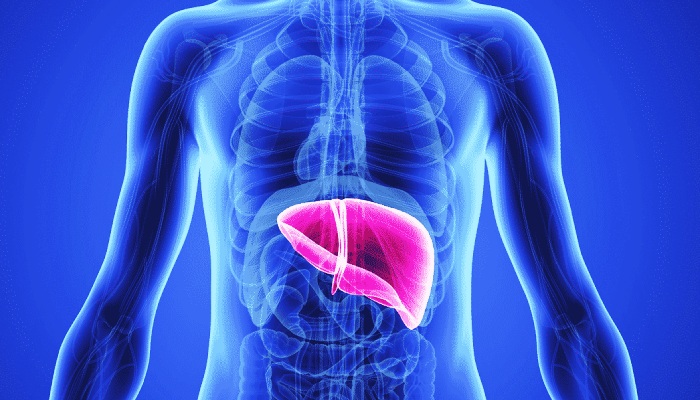
How NAC and Selenium Support Liver Function and Detoxification
The liver is a vital organ responsible for numerous critical functions, including detoxification, metabolism, and the production of essential proteins and enzymes. Maintaining a healthy liver is crucial for overall well-being, and liver detoxification plays a significant role in this process. Two powerful compounds that support liver health and detoxification are NAC (N-Acetyl Cysteine) and Selenium. These nutrients work synergistically to enhance liver function, protect liver cells, and promote the production of key antioxidants such as glutathione.
NAC, a derivative of the amino acid L-cysteine, is renowned for its ability to boost glutathione production, a powerful antioxidant that protects liver cells from damage. This is particularly important in conditions like nonalcoholic fatty liver disease, where oxidative stress and inflammation can impair liver function. Additionally, NAC supports the function of liver enzymes involved in detoxification, helping to neutralize and eliminate toxins from the body.
Selenium, a trace mineral essential for various bodily functions, also plays a crucial role in liver health. It works in conjunction with other antioxidants like vitamin C and alpha lipoic acid to combat oxidative stress and support liver cell regeneration. By reducing the harmful effects of reactive oxygen species, Selenium helps maintain the integrity and functionality of liver cells.
In this article, we will explore how NAC and Selenium support liver function and detoxification, delve into their individual and combined benefits, and provide guidance on effectively using these supplements to promote liver health. Understanding the mechanisms behind these compounds can empower individuals to make informed decisions about their liver health and overall well-being.

Understanding NAC (N-Acetyl Cysteine) and Selenium
NAC (N-Acetyl Cysteine)
NAC, or N-Acetyl Cysteine, is a derivative of the amino acid L-cysteine. This powerful antioxidant is renowned for its ability to replenish glutathione levels, a crucial compound in the body’s antioxidant defense system. Glutathione plays an essential role in liver detoxification by neutralizing harmful reactive oxygen species (ROS) and supporting the regeneration of liver cells. By boosting glutathione levels, NAC helps maintain healthy liver function, protecting this vital organ from oxidative damage and promoting efficient detoxification processes.
Selenium
Selenium is a trace mineral that is integral to various bodily functions, including immune function and thyroid hormone metabolism. In the context of liver health, selenium’s primary role is its antioxidant capacity. It is a component of selenoproteins, which are essential for protecting cells from oxidative damage and reducing inflammation. By mitigating the harmful effects of reactive oxygen species, selenium supports liver cells in performing their detoxification duties efficiently. Moreover, selenium aids in the regeneration of liver cells, ensuring the liver can recover and maintain its health even under stress.
Combined Benefits
When combined, NAC and selenium create a powerful synergy that enhances liver detoxification and promotes overall healthy liver function. NAC’s role in boosting glutathione complements selenium’s antioxidant properties, providing a comprehensive defense against oxidative stress. This combination not only supports the liver’s detoxification processes but also aids in the repair and regeneration of liver cells, ensuring the liver can function optimally.
By understanding the individual and combined benefits of NAC and selenium, it becomes evident why these compounds are pivotal for maintaining liver health. Their antioxidant properties, coupled with their roles in detoxification and cell regeneration, make
The Role of NAC in Liver Function
N-Acetyl Cysteine (NAC) is a potent antioxidant that plays a pivotal role in maintaining and enhancing liver function. As a derivative of the amino acid L-cysteine, NAC is instrumental in the synthesis of glutathione, one of the most critical antioxidants in the body. Glutathione is essential for protecting liver cells from oxidative stress and damage, which is particularly important for individuals with liver health concerns such as nonalcoholic fatty liver disease and elevated liver enzymes.
Glutathione Synthesis and Antioxidant Defense
NAC significantly boosts glutathione synthesis, ensuring adequate levels of this vital antioxidant in the liver. Glutathione works by neutralizing reactive oxygen species (ROS) and reducing lipid peroxidation, a process where free radicals damage cell membranes. By mitigating these oxidative processes, NAC helps maintain the structural and functional integrity of liver cells, promoting overall liver health.
Detoxification Support
The liver is the body’s primary detoxification organ, responsible for filtering and eliminating toxins from the bloodstream. NAC supports liver detoxification by enhancing the activity of liver enzymes involved in the detoxification process. These enzymes convert harmful substances into less toxic forms that can be easily excreted from the body. By boosting the function of these enzymes, NAC ensures that the liver can efficiently process and eliminate toxins, reducing the risk of liver damage and other liver health concerns.
Protection Against Liver Damage
Oxidative stress and inflammation are major contributors to liver damage and elevated liver enzymes. NAC’s antioxidant properties protect the liver from these damaging effects, promoting the healing and regeneration of liver cells. This is particularly beneficial for individuals suffering from conditions such as nonalcoholic fatty liver disease, where oxidative stress plays a significant role in disease progression.

Research and Evidence
Numerous studies have highlighted the benefits of NAC for liver health. Research has shown that NAC supplementation can significantly reduce oxidative stress, improve glutathione levels, and enhance liver function. These findings support the use of NAC as a therapeutic agent for various liver health concerns, including those associated with elevated liver enzymes and fatty liver disease.
Selenium’s Contribution to Liver Health
Selenium is a trace mineral that plays a crucial role in maintaining overall health, including the support of liver function and detoxification processes. Its significance lies in its powerful antioxidant properties and its role in the proper functioning of enzymes involved in liver health. By working in conjunction with other antioxidants, selenium helps protect liver cells from damage and supports a healthy immune system, which is essential for liver health.
Antioxidant Properties and Protection Against Liver Injury
Selenium is a key component of selenoproteins, which are enzymes that perform vital antioxidant functions in the body. These selenoproteins help reduce oxidative stress by neutralizing reactive oxygen species (ROS) that can cause cellular damage. In the liver, this antioxidant action is crucial in protecting against liver injury caused by toxins, alcohol, and other harmful substances. By mitigating oxidative stress, selenium helps maintain the integrity of liver cells and supports overall liver health.
Support for Liver Detoxification Processes
The liver’s primary function is to detoxify the body by breaking down and eliminating harmful substances. Selenium plays a vital role in supporting liver detoxification processes through its involvement in the production and activity of detoxifying enzymes. These enzymes help convert toxic compounds into less harmful forms that can be excreted from the body. By enhancing the liver’s ability to detoxify, selenium ensures that the liver can effectively manage and eliminate toxins, reducing the risk of liver damage.
Amino Acids and Glutathione Production
Selenium also works synergistically with amino acids to support the production of glutathione, a major antioxidant in the liver. Glutathione is essential for detoxifying harmful substances and protecting liver cells from oxidative damage. Selenium’s role in glutathione production further underscores its importance in maintaining liver health and preventing liver injury.
Healthy Immune System
A healthy immune system is crucial for protecting the liver from infections and inflammation. Selenium supports a robust immune system by enhancing the activity of immune cells and promoting the production of antibodies. This immune support helps the liver resist infections and recover from injury more effectively, contributing to overall liver health.
Research and Evidence
Scientific research has consistently demonstrated the benefits of selenium for liver health. Studies have shown that selenium supplementation can reduce oxidative stress, improve liver function, and enhance the liver’s ability to detoxify harmful substances. These findings highlight selenium’s critical role in supporting liver health and preventing liver-related diseases.
Synergistic Effects of NAC and Selenium
NAC (N-Acetyl Cysteine) and Selenium, when used together, create a powerful synergy that significantly enhances liver function and detoxification processes. Their combined effects support a healthy inflammatory response, protect liver cells from damage, and improve the liver’s ability to detoxify harmful substances. This synergy makes them particularly beneficial in managing and preventing liver diseases.
Enhanced Antioxidant Protection
Both NAC and Selenium are potent antioxidants, and their combined effects offer superior protection against oxidative stress. NAC boosts glutathione levels, a critical antioxidant in the liver, while Selenium forms part of selenoproteins that neutralize reactive oxygen species (ROS). Together, they reduce oxidative damage to liver cells, thereby protecting against liver diseases caused by oxidative stress and inflammation.

Improved Liver Detoxification
NAC and Selenium enhance the liver’s detoxification processes by supporting the activity of detoxifying enzymes. NAC aids in replenishing glutathione, which plays a crucial role in detoxifying harmful substances. Selenium, on the other hand, is essential for the function of various detoxifying enzymes. By boosting these processes, NAC and Selenium ensure the liver can efficiently detoxify and eliminate toxins, reducing the risk of liver damage and maintaining overall liver health.
Support for a Healthy Inflammatory Response
Chronic inflammation is a significant contributor to liver diseases, including nonalcoholic fatty liver disease and alcoholic liver disease. NAC and Selenium help modulate the body’s inflammatory response, promoting a healthy inflammatory response in the liver. NAC reduces the production of pro-inflammatory cytokines, while Selenium enhances the activity of anti-inflammatory enzymes. This combined effect helps mitigate inflammation, protecting the liver from chronic inflammatory damage.
Cellular Repair and Regeneration
The liver has a remarkable ability to repair and regenerate itself. NAC and Selenium support this regenerative process by providing the necessary nutrients and antioxidants to repair damaged liver cells. NAC’s role in glutathione synthesis and Selenium’s involvement in enzyme function aid in the regeneration of liver tissues, ensuring the liver can recover from injuries and maintain its functions effectively.
Research and Evidence
Numerous studies have highlighted the synergistic benefits of NAC and Selenium in promoting liver health. Research shows that the combination of these nutrients can significantly reduce oxidative stress, improve liver enzyme function, and enhance the liver’s detoxification capacity. These findings underscore the importance of using NAC and Selenium together to support liver health and prevent liver diseases.
The synergistic effects of NAC and Selenium offer comprehensive support for liver function and detoxification. Their combined antioxidant properties, support for a healthy inflammatory response, and enhancement of liver detox processes make them a powerful duo for maintaining liver health and preventing liver diseases.
Conclusion
NAC and Selenium are powerful nutrients that play crucial roles in supporting liver function and detoxification. NAC enhances glutathione production, protects against oxidative stress, and supports liver detox processes. Selenium, with its antioxidant properties and support for enzyme functions, further enhances liver health by protecting liver cells and promoting a healthy inflammatory response. Together, these compounds offer a synergistic effect that enhances liver detoxification, protects against liver diseases, and supports overall liver health. Incorporating NAC and Selenium into your health regimen can provide significant benefits for maintaining a healthy liver.
